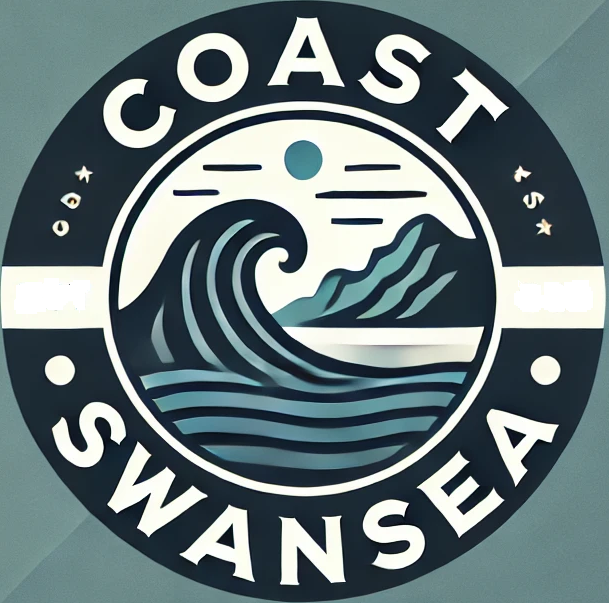Swansea Bay and the Gower Peninsula offer an incredible array of underwater adventures for those interested in exploring marine life.
Whether you’re new to scuba diving or snorkelling, or an experienced diver seeking new spots, this guide will help you plan a memorable underwater experience in Swansea Bay and Gower.
A favourite spot for snorkellers and beginner divers due to its calm waters and rich marine life. The bay’s sheltered nature ensures good visibility and a safe environment for exploring.
Located at Rhossili, this spot is ideal for more experienced divers. The surrounding waters are known for their abundance of marine life and unique rock formations, offering a thrilling underwater experience.
Great for both snorkelling and diving, Port Eynon features interesting underwater landscapes and plenty of fish species. It’s also home to a few hidden wrecks that make for exciting exploration.
Caswell Bay and Langland Bay are also great locations for snorkelling, offering clear waters and accessible entry points.
Specialises in eco-friendly diving and snorkelling tours that highlight the rich marine biodiversity of the Gower Peninsula. Their instructors emphasize conservation and respect for the marine environment.
Provides a variety of courses from beginner to advanced, with expert instructors and high-quality gear. Known for their patient approach and knowledge of the local underwater terrain.
Offers both guided snorkelling tours and scuba lessons, catering to all skill levels. Their instructors are well-versed in local marine life and provide engaging experiences for individuals and groups alike.
Beginner Scuba Diving Lessons
Designed for first-time divers, beginner lessons include an introduction to diving equipment, essential safety training, and basic underwater navigation. Certified instructors guide you through the process, ensuring a safe and enjoyable first dive in shallow, controlled conditions.
Snorkelling Tours
Ideal for those who prefer a more relaxed underwater experience, snorkelling tours take you through some of the clearest waters around the Gower, showcasing beautiful marine life and unique rock formations just below the surface.
Intermediate and Advanced Diving Courses
For those with some diving experience, intermediate courses cover more advanced skills like buoyancy control, deeper dives, and navigation. Advanced courses can include wreck diving and night dives for a unique perspective on the underwater world.
Group vs. Private Lessons
Opt for group lessons for a fun, social environment, perfect for friends or families. Private lessons offer personalized coaching and allow for a more tailored experience.
Booking Tips
Book your lessons or tours in advance, especially during peak summer months. Many local diving centres offer online booking and flexible schedules to accommodate groups and individuals.
Additional Activities
Complement your underwater experience with a walk along the coastal paths or visit local seafood restaurants for a post-dive treat. Swansea Bay and Gower have plenty of activities to extend your day of adventure.
Packages and Discounts
Check for multi-session packages or group discounts at diving centres, which can be great value for families or those planning multiple dives or snorkelling trips.
Best Time of Year to Dive and Snorkel
The summer months provide the best conditions, with warmer water temperatures and improved visibility. Spring and autumn are also good times to explore, with fewer crowds and still-good water clarity. Winter diving is recommended only for experienced divers due to colder temperatures and rougher seas.
Weather and Safety Considerations
Always check weather forecasts and tide charts before heading out. Visibility and currents can change quickly, so being prepared is essential. For scuba diving, plan dives around slack tide when currents are at their weakest.
What to Bring
For scuba diving, a wetsuit or drysuit (depending on the season), dive mask, snorkel, fins, and appropriate diving equipment such as a regulator and tank are essential. For snorkelling, a snorkel set, fins, and a wetsuit are recommended. Most local centres provide rentals if you do not have your own gear.
Preparation Tips
Before heading out, ensure your equipment is in good condition and fits properly. Perform basic warm-up exercises and breathing techniques to prepare for underwater activity. Always plan your dive or snorkelling route and stick to it for safety.
Sustainability and Eco-Friendliness
Respect marine life by not touching or disturbing it and avoid kicking up sediment, which can reduce visibility and disrupt the habitat. Use reef-safe sunscreen and follow local guidelines to protect the delicate underwater ecosystem.
Rules of the Water
Maintain a safe distance from marine life and follow the “look but don’t touch” principle. When diving, avoid damaging corals and plants with fins. Be respectful of other water users and practice proper buoyancy control to avoid accidental contact with the sea floor.
Safety Guidelines
Always dive or snorkel with a buddy and inform someone of your plan and expected return time. Use appropriate hand signals for communication while diving and have a dive watch or computer to monitor your depth and time underwater. For snorkelling, ensure you stay close to the shore or within designated safe areas.
